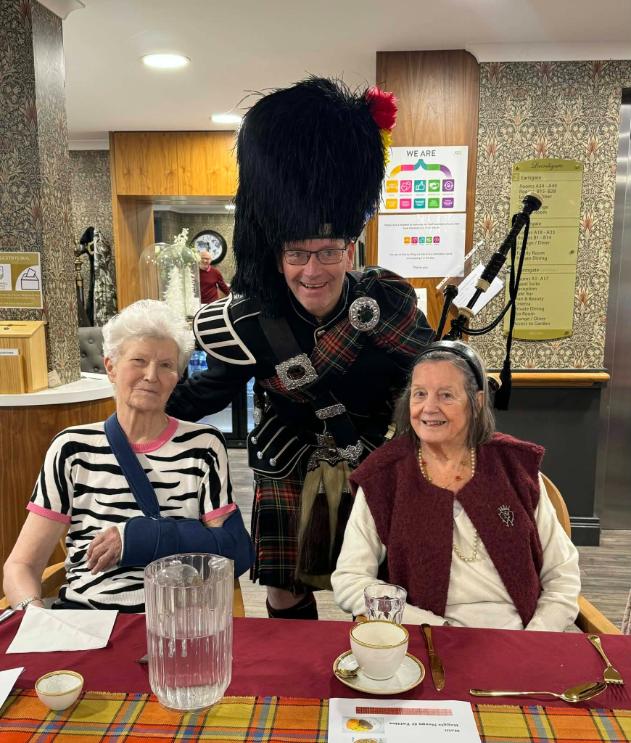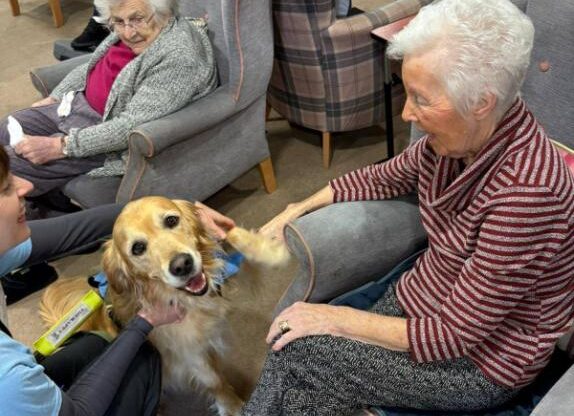What Does an Activities Coordinator in a Nursing Home Do?
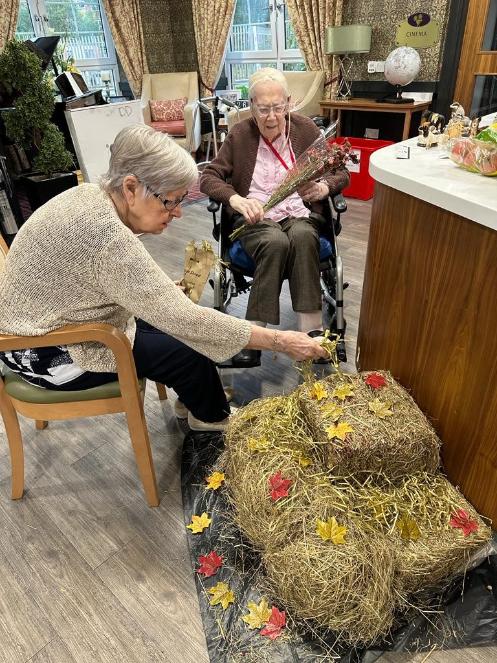
Joining in with favourite activities is an important part of care home life, whether residents are staying for short-term respite care or have made a more permanent move into residential care. For many older people, adapting to a new community environment can feel overwhelming, so ensuring they have access to stimulating, enjoyable activities that reflect their interests and abilities is essential. An Activities Coordinator is instrumental in creating an engaging activities programme that connects with people's past experiences, hobbies, and passions. Being encouraged to join in with activities in their home can provide residents with comfort and a sense of purpose, helping them flourish in their new surroundings.
A well-planned and diverse activity programme can make all the difference in ensuring residents feel stimulated, valued, and connected to their community. Whether you are a family member helping a loved one settle into care home life, or someone preparing for the move yourself, an Activity Coordinator has plenty of ways to ensure that daily life remains busy and fulfilling.
Creative Pursuits to Inspire Self-Expression
Creative activities are great fun and provide a wonderful outlet for personal expression, turning routine care home days into opportunities for artistic exploration. Many care homes encourage residents to participate in art classes, crafts sessions, or music groups that encourage them to showcase their talents and discover new abilities. These creative sessions often include personalised arts and crafts projects tailored to individual interests. They provide mental stimulation and serve as a bridge to memories of past hobbies and creative endeavours. Completing their enjoyable creative projects gives residents a great sense of achievement and confidence.
For those in nursing care, gentler creative activities, such as watercolour painting or simple craft projects, can be wonderfully therapeutic and accessible. A well-designed creative programme with familiar artistic mediums can help ease the transition, particularly for those living with dementia, as it provides a meaningful connection to their sense of identity and personal history. Engaging in these activities also helps residents maintain their personal identity, supporting self-awareness and continuity of personality, which is crucial for their well-being in care settings.
The Power of Physical Activity for Wellbeing
Physical activities hold tremendous value and can make all the difference when adapting to care home life. Exercise classes designed for older adults, gentle yoga sessions, gentle exercises, and chair-based fitness programmes can help maintain mobility and strength. Lots of residents find great pleasure in participating in dance classes or taking outdoor walks, and see them as fantastic opportunities to improve both physical wellbeing and social connection.
Bringing movement into daily routines through accessible activities such as gardening clubs, swimming sessions, or even simple stretching exercises can reinforce a feeling of independence. These activities remind residents of their physical capabilities and achievements, helping to maintain their care home experience as an active and busy place.
Mental Stimulation Through Engaging Challenges
Cognitive activities are another excellent way to add enrichment and mental sharpness to care home life. Residents are usually keen on participating in quiz sessions, puzzle groups, or book clubs as it makes their daily routine feel much more intellectually rewarding. Familiar mental challenges and brain-training exercises can be deeply satisfying for those adjusting to a new environment, helping to keep residents mentally stimulated.
Adding word games, memory activities, and discussion groups that reflect personal interests can help create an intellectually stimulating atmosphere. These activities also support mental health and mental wellbeing by encouraging social interaction and emotional engagement. A welcoming care home will always encourage residents to engage their minds, ensuring that every day offers opportunities for learning and mental growth. Offering a variety of activity ideas helps keep residents engaged, supports their cognitive functions, and fosters a busy and vibrant community.
Building Connections Through Social Activities
The way social activities are organised definately impact how connected and supported a person feels. Activities Coordinators also encourage participation in group events that encourage interaction and social interaction, such as tea parties, themed celebrations, or community singing. Social gatherings, game nights, or shared hobby groups based on shared interests that bring people together can also make the environment feel more less institutional, particularly for those who may have recently felt isolated. These activities also help residents form new connections with others in the community.
For residents who enjoy companionship or have fond memories of social occasions, activities that reflect these interests can be a wonderful addition. Whether it’s organising birthday celebrations or hosting family events with family member involvement, continuing to build a social life is important when someone moves into a care home.
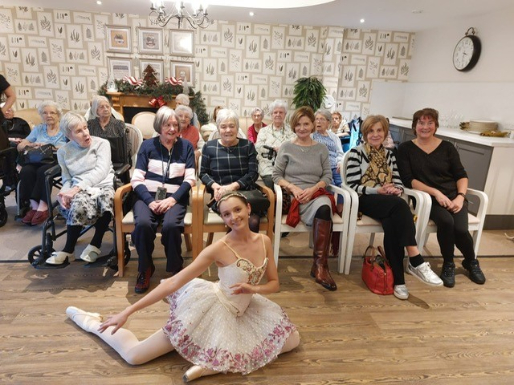
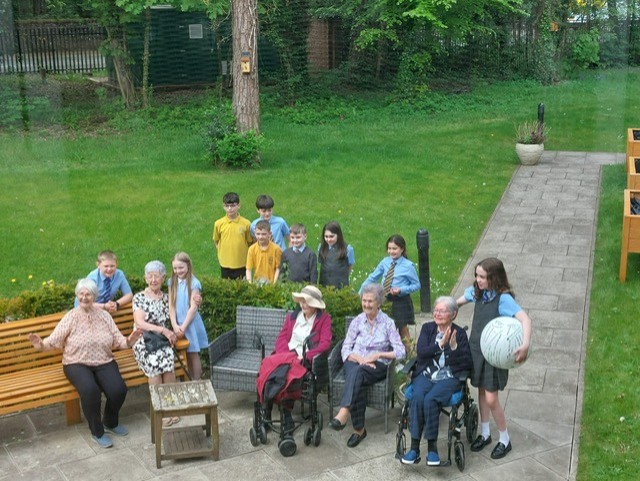
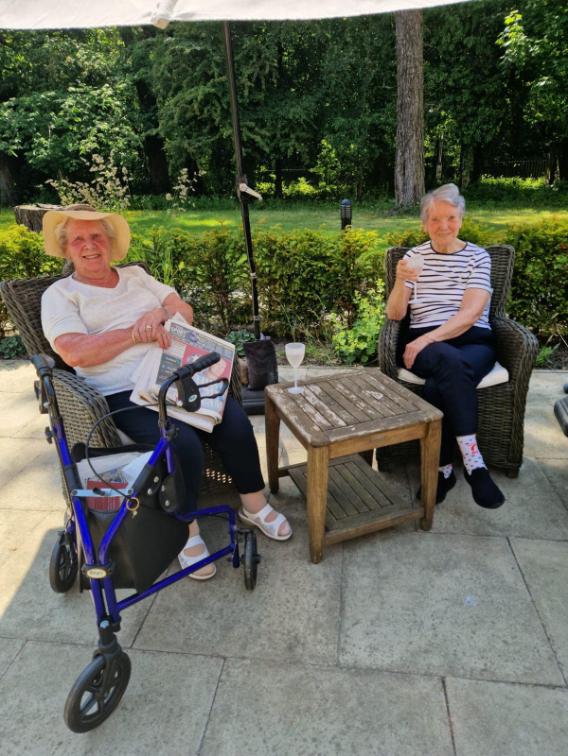
Embracing Nature Through Outdoor Experiences
Spending time outdoors and connecting with nature is an important part of care home life, and well-planned outdoor activities can support both physical and emotional wellbeing. Activities Coordinators ensure there are regular opportunities for garden walks, outdoor games, garden games, or visits to local attractions. Staying part of the local community encourages residents to enjoy fresh air and maintain their connection to the wider community.
Having organised trips to garden centres, seaside outings, or even simple picnics in the care home grounds can create wonderful shared experiences. Most care home have a garden or a small outdoor seating area where residents can enjoy their morning tea, and as part of getting to know residents and personalising their activities programme Activities Coordinators also chat about whether someone might enjoy outdoor activities like watching wildlife, flower arranging, bowls or using a putting green. All the staff in a high-quality care home will understand the importance of maintaining residents’ connection to nature and will support various outdoor programmes that accommodate different mobility levels.
Sensory Activities for Memory and Comfort
Sound, texture, and familiar sensory experiences can have a powerful impact on memory and mood. Favourite music sessions, aromatherapy activities, head massages, or tactile craft projects can make care home life feel instantly more personal and comforting. These activities also help reduce stress for residents, supporting their overall mental wellbeing.
Music programmes can be incredibly enriching. Bringing musical instruments, organising sing-along sessions, or playing residents’ favourite songs from their youth can help create a joyful atmosphere. Whether they enjoy classical music, wartime songs, or folk tunes, music activities are also wonderful conversation starters with care staff and fellow residents. Care homes understand the emotional benefits of music therapy, particularly for those with dementia, as it can trigger positive memories and provide a sense of calm and connection.
Finding the Right Balance Between Engagement and Rest
While maintaining an active and stimulating environment is important, it’s also necessary to balance this with opportunities for quiet reflection and rest. The activity programme needs to remain flexible, accessible, and suited to each resident’s individual needs and energy levels, with activities available at varying levels of difficulty to accommodate different capabilities.
The care home team and the Activities Coordinators work with residents and their families to find the best ways to encourage participation, providing extra support for those who need it. Residents are encouraged to actively participate in activities, ensuring they remain enjoyable rather than overwhelming. For those receiving nursing care, ensuring there are both group activities and quieter individual pursuits available is a key consideration. It is also important to balance individual needs and preferences with the safety, rights, and wellbeing of other residents within the care home environment.
The Benefits of a Vibrant Care Home Community
A dynamic, well-planned activity programme can have a transformative impact on a resident’s wellbeing, especially for care home residents, by supporting their mental, physical, and emotional health. These activities benefit care home residents by fostering engagement, reducing loneliness, and promoting a sense of purpose. The Activities Coordinator plays a central role in planning and delivering a diverse range of activities tailored to residents’ needs and preferences. In addition to fostering community belonging, meaningful activity is an essential part of care, supporting both emotional and physical wellbeing.
For respite care residents, having access to engaging activities, including a variety of care home activity ideas and activity ideas can make a short stay much more enjoyable and meaningful. These ideas inspire participation and help residents feel included. It ensures that, even though they may be away from home temporarily, they still have opportunities to pursue interests and form connections. Understanding each resident’s hobbies and interests and planning activities around their individual interest is key to making activities truly engaging and beneficial.
A care home that prioritises meaningful activities reflects a commitment to high-quality, person-centred care. Incorporating person-centred activities supports residents’ mental and physical health, as well as their physical health, by offering tailored experiences that promote overall wellbeing. Families should always feel confident that their loved one will have access to stimulating and enjoyable experiences. Even small changes or new ideas in activity planning can make a big difference in residents’ lives, enhancing their daily experiences. Honouring residents’ interests and abilities also means supporting them to maintain routines from their own home, such as folding laundry, to help preserve independence and dignity. When assessing quality of life, it’s important to observe how a care home tailors its activity programme to individual residents.
Activites at Bothwell Castle Care Home
We have plenty of regular activities available to residents here at Bothwell Castle Care Home in Uddingston, from daily exercise sessions and movie afternoons to arts and crafts, knitting, baking, and board games. Residents base their week around favourite activities including Friday Funday, Monday Club at the local church, and a weekly men’s pub afternoon, as well as the ever-popular bingo and pet therapy sessions. Familes of residents are always welcome to join in with activities so they can enjoy some quality time with their loved one. If you'd like to find out more about the activities we offer, get in touch to book a tour of our home and join in.

